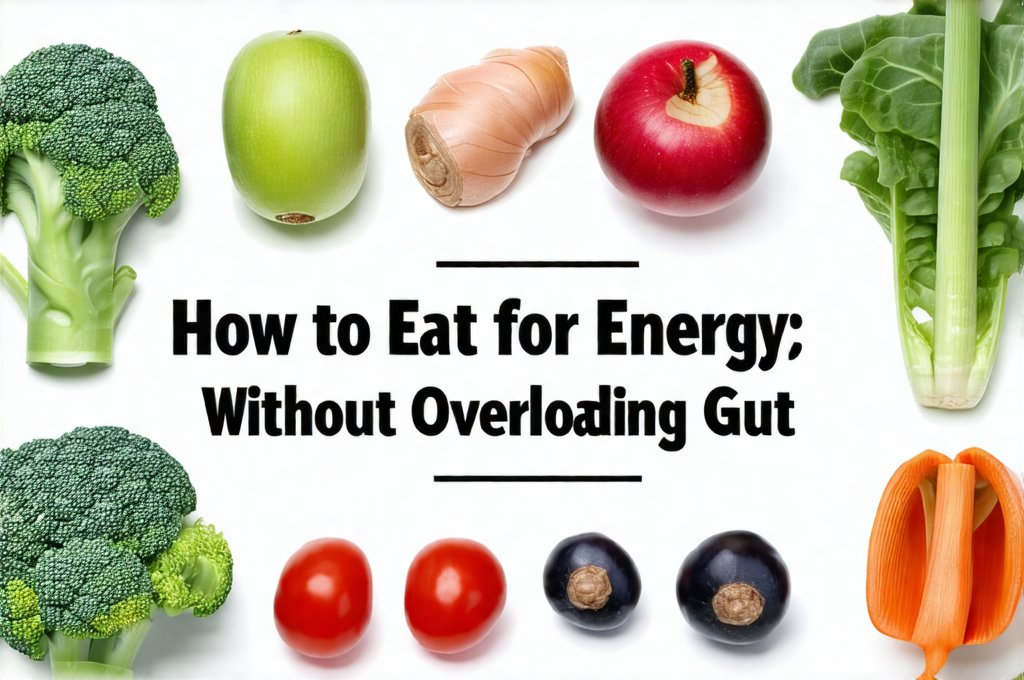Many people experience fluctuating energy levels throughout the day, often resorting to quick fixes like caffeine or sugary snacks. While these provide temporary boosts, they frequently lead to crashes and can contribute to long-term health issues. The problem isn’t always a lack of sleep or inherent fatigue; more often, it’s how we fuel our bodies. A disconnect exists between the foods we consume and how efficiently our digestive systems process them, leaving us feeling sluggish even after eating. Understanding this interplay is crucial for sustained energy.
The modern diet, packed with processed foods, refined sugars, and excessive amounts of certain fats, can overwhelm our gut microbiome – the trillions of bacteria living in our digestive tract that play a vital role in overall health and energy production. A disrupted gut impacts nutrient absorption, inflammation levels, and even mental clarity. Eating for energy isn’t simply about calorie counting or following the latest diet trend; it’s about nourishing both our cells and the ecosystem within us, creating a harmonious relationship between food and well-being. It requires mindful choices that prioritize whole foods, balanced macronutrients, and gut health. If you are unsure about sensitivities, consider how to test for sensitivities.
The Foundation: Whole Foods & Balanced Macronutrients
The cornerstone of sustained energy is building your diet around whole, unprocessed foods. These are foods in their natural state – fruits, vegetables, lean proteins, healthy fats, and complex carbohydrates. They contain a wealth of vitamins, minerals, antioxidants, and fiber that provide the body with consistent fuel and support optimal function. Avoid heavily processed items that often lack these essential nutrients and can contribute to inflammation. Think of it as choosing nourishment over mere calories.
Balancing macronutrients – carbohydrates, proteins, and fats – is equally important. Carbohydrates are our primary energy source, but complex carbs found in whole grains, vegetables, and fruits provide a slower, more sustained release of glucose compared to refined sugars. Proteins are essential for building and repairing tissues, and healthy fats (like those from avocados, nuts, seeds, and olive oil) support hormone production, brain function, and nutrient absorption. A diet lacking in any of these macronutrients will ultimately lead to energy dips. Learning how to read food labels can help you make informed choices.
Consider the concept of “food combining” with a grain of salt; overly strict rules can be restrictive and unnecessary for most people. However, paying attention to how different foods interact within your digestive system can be beneficial. For example, pairing carbohydrates with protein or healthy fats slows down glucose absorption, preventing spikes and crashes in blood sugar levels. This is why eating an apple with a handful of almonds is more energizing than simply eating the apple alone.
Gut-Friendly Food Choices
The gut microbiome significantly influences energy levels. A diverse and thriving gut bacteria population enhances nutrient absorption, reduces inflammation, and even impacts mood – all factors directly related to how energetic we feel. Prioritizing prebiotic and probiotic-rich foods is key to supporting a healthy gut.
- Prebiotics are types of fiber that feed the beneficial bacteria in your gut. Excellent sources include garlic, onions, leeks, asparagus, bananas, oats, and apples.
- Probiotics are live microorganisms found in fermented foods like yogurt (with live cultures), kefir, sauerkraut, kimchi, kombucha, and miso.
Incorporating these foods into your diet can gradually improve gut health, leading to increased energy levels and improved overall well-being. Be mindful that introducing large amounts of fiber suddenly can cause digestive discomfort; start slowly and gradually increase intake. Listen to your body and adjust accordingly. Fermented foods are powerful, but some individuals may experience sensitivities — again, gradual introduction is best. If you’re struggling with inflammation, understanding what to eat when your gut is inflamed can be a great starting point.
Hydration & Electrolyte Balance
Often overlooked, hydration is essential for energy production. Dehydration can lead to fatigue, headaches, and impaired cognitive function. Aim to drink water throughout the day, not just when you feel thirsty. Carry a reusable water bottle as a visual reminder. The amount of water needed varies depending on activity level, climate, and individual needs.
Electrolytes – minerals like sodium, potassium, magnesium, and calcium – are also crucial for maintaining energy levels and proper bodily function. We lose electrolytes through sweat, so replenishing them is particularly important during exercise or in hot weather. Good sources of electrolytes include coconut water, leafy green vegetables, bananas, and unsweetened electrolyte drinks (choose options with minimal added sugar). Electrolyte imbalances can contribute to fatigue and muscle cramps.
Mindful Eating & Digestion Support
Finally, how we eat is just as important as what we eat. Practicing mindful eating – paying attention to your hunger cues, savoring each bite, and avoiding distractions during meals – allows for better digestion and nutrient absorption. Chewing food thoroughly breaks down particles, making them easier to digest.
Consider incorporating digestive support strategies into your routine. These might include:
1. Sipping on ginger tea before or after meals (ginger aids in digestion).
2. Adding a small amount of apple cider vinegar diluted in water before meals (may improve gut acidity).
3. Avoiding large, heavy meals close to bedtime (allowing time for proper digestion during sleep).
Stress can also negatively impact digestion. Finding ways to manage stress – through activities like yoga, meditation, or spending time in nature – can indirectly support energy levels by improving digestive function and reducing inflammation. Prioritizing a relaxed eating environment and taking the time to truly enjoy your meals are powerful steps toward sustained energy and a healthy gut. To further refine your approach, you might explore how to train your gut for improved tolerance. And if navigating social situations is tricky, consider how to explain your diet. Finally, a rotation diet can be helpful in identifying sensitivities.


















